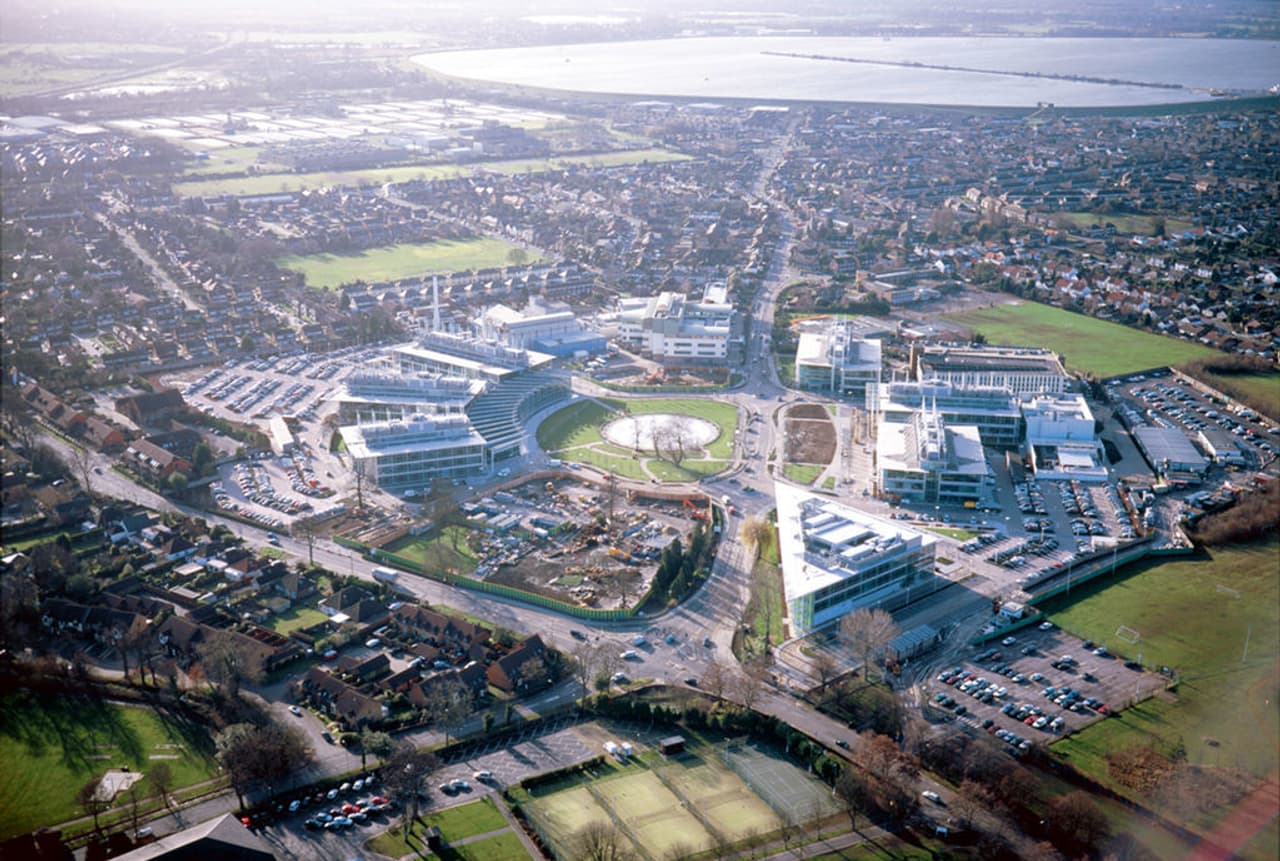
Auditors call council's billion pound property "roulette" into question
Auditors have delivered a damning assessment of how a small district council in Surrey undertook the most expensive property investment ever made by a local authority. KPMG found “significant weaknesses” in financial processes surrounding Spelthorne Borough Council’s purchase of a BP research centre in Sunbury for £385 million in September 2016.
This raises further questions about billions of pounds of property investments which councils have made in recent years.
The decision-making process in Spelthorne was conducted via email and was “generally poor and difficult to follow”, meaning it was “difficult to identify whether all the risks associated with such a large and significant transaction had been fully considered and mitigated”, the auditor said.
The acquisition of the site, through £405 million borrowed from a government lending body, was decided by council officers without any public scrutiny using what is known as delegated authority. The Conservative-led council then took four months to publish the decision and in doing so incorrectly attributed it to the wrong council officer, said the auditor. Councils are required by law to issue such notices in a timely manner.
 BP's massive Sunbury research centre was bought by Spelthorne for £385 million
BP's massive Sunbury research centre was bought by Spelthorne for £385 million
KPMG also found little evidence the council had properly considered legal advice that the purchase, the largest of its kind by a local authority in England, may be “disproportionate” in comparison to its other spending.
Perhaps most worryingly, the auditor was unable to determine whether the council had considered the potential financial impact if BP decided not to renew, or to change the terms of, its 20-year lease. “As significant loan costs still need to be met for up to 50 years, we would have expected to see projections analysing the position under different scenarios” reads a recently added section at the bottom of the council’s 2016-17 accounts, which KPGM had declined to sign off for almost two years.
The auditor concluded: “On the basis of our work…we are not satisfied that, in all respects, Spelthorne Borough Council put in place proper arrangements to secure economy, efficiency and effectiveness in its use of resources for the year ended 31 March 2017.”
Spelthorne council told the Bureau that the "adverse value for money conclusion does not mean that the Auditors are saying the actual transaction does not represent value for money but that in their opinion some aspects of decision making processes were not conducive to maximising value for money."
Robert Evans, a Labour county councillor representing Spelthorne, said he was very surprised the council didn’t do adequate due diligence around the deal. “They seem to be playing property roulette with council taxpayers’ money. If the climate is good that might be okay but with Brexit round the corner everything is uncertain and this is foolhardy at best and downright dangerous at worst” he told the Bureau.
“A lot of people in Spelthorne don’t know anything about these purchases but when they do they’re concerned. They’re concerned they weren’t asked and that a small council has invested more than any other council in England.”
Research by The Bureau, published in December 2018, found the number of councils investing in property, in the hope of replacing lost funding with rental income, had doubled in the previous two years. The purchase of the BP site by Spelthorne is the most expensive such acquisition to date.
Spelthorne has been by some distance the biggest spender, borrowing £1 billion from the Public Works Loan Board (PWLB) to fund an unprecedented spree of property purchases in a bid to become self-sufficient. That equates to more than 40 times the council’s annual spending power. The council tried unsuccessfully to purchase two further properties for another £300 million.
In its own words the authority has become “heavily reliant on investment income” to fund the services it provides.
 Spelthorne council has appointed new auditors who will look at its latest acquisitions including the Thames Tower in Reading part of a £285 million deal in August 2018
Spelthorne council has appointed new auditors who will look at its latest acquisitions including the Thames Tower in Reading part of a £285 million deal in August 2018
In response to the Bureau’s investigation in 2018, Housing and Communities Secretary James Brokenshire said he would talk to the Treasury about whether “further interventions might be required” with regard to the investments. In January, senior civil servant Dr Jo Farrar admitted the government was worried that “two or three” local authorities had borrowed too much to invest in commercial property.
A month later Spelthorne announced it had stopped making further property investments policy. Council leader Ian Harvey said the acquisitions had “achieved our objective of significantly boosting our income to support provision of services”.
The Bureau revealed in December 2018 that KPMG had yet to sign off the council’s 2016-17 accounts because it was felt they “did not appropriately reflect the significant transactions that took place during the year, such as the acquisition of the BP campus or the drawdown of over £400 million in loans”.
In addition, the auditor identified a “significant volume” of presentational and disclosure errors, material inconsistencies in the accounts, and departures from the official guidance provided by the Chartered Institute of Public Finance and Accountancy (CIPFA).
The council blamed the issues on the departure of both its chief and deputy chief accountants, as well as “some issues with the interim cover”. KPMG has now issued its final verdict on the accounts in which it said the council had not provided value for money in 2016-17:
“We are not satisfied that during the year the authority had appropriate arrangements for securing economy, efficiency and effectiveness in the use of its resources. This is as a result of significant weaknesses identified in those arrangements in relation to the authority’s purchase of the BP campus.”
In response Spelthorne defended its decision-making process but said additional governance arrangements had been put in place to address some of the auditor’s concerns.
It added: “The council’s decision makers sought appropriate professional advice from a range of best in class advisers who provided exhaustive due diligence and ensured that risks were identified, discussed and mitigated.
“Due to the timing of when the BP opportunity arose there were a number of teleconferences required at which advisers, senior officers (including the Chief Executive and Section 151 Officer) or councillors (the Leader and the Finance Portfolio Holder) were dialling in. The use of email did ensure a written record of decision taking and discussions existed.
“The four decision makers all reviewed the extensive reports provided by our external advisors, and were briefed by both senior officers and our advisors, prior to giving their delegated approval.” In July 2018 KPMG also withheld its verdict on Spelthorne’s 2017-18 accounts while it undertook a review of the properties the council has purchased. That work is ongoing. It has since been replaced by BDO as the council’s auditor.
In a draft 2017-18 audit report, published in March of this year, KPMG said that Spelthorne had incorrectly applied an exemption to its subsidiary, Knowle Green Estates Ltd, meaning the accounts of the company, set up as part of its investment and property programme, have not been audited.
“We strongly recommend that the council appoints an auditor for Knowle Green Estates Ltd as a matter of priority for all periods going forward,” the report said.
Header image: Aerial view of BP research centre in Sunbury bought by Spelthorne for £385 million.
Our reporting on local power is part of our Bureau Local project, which has many funders. None of our funders have any influence over the Bureau’s editorial decisions or output.





